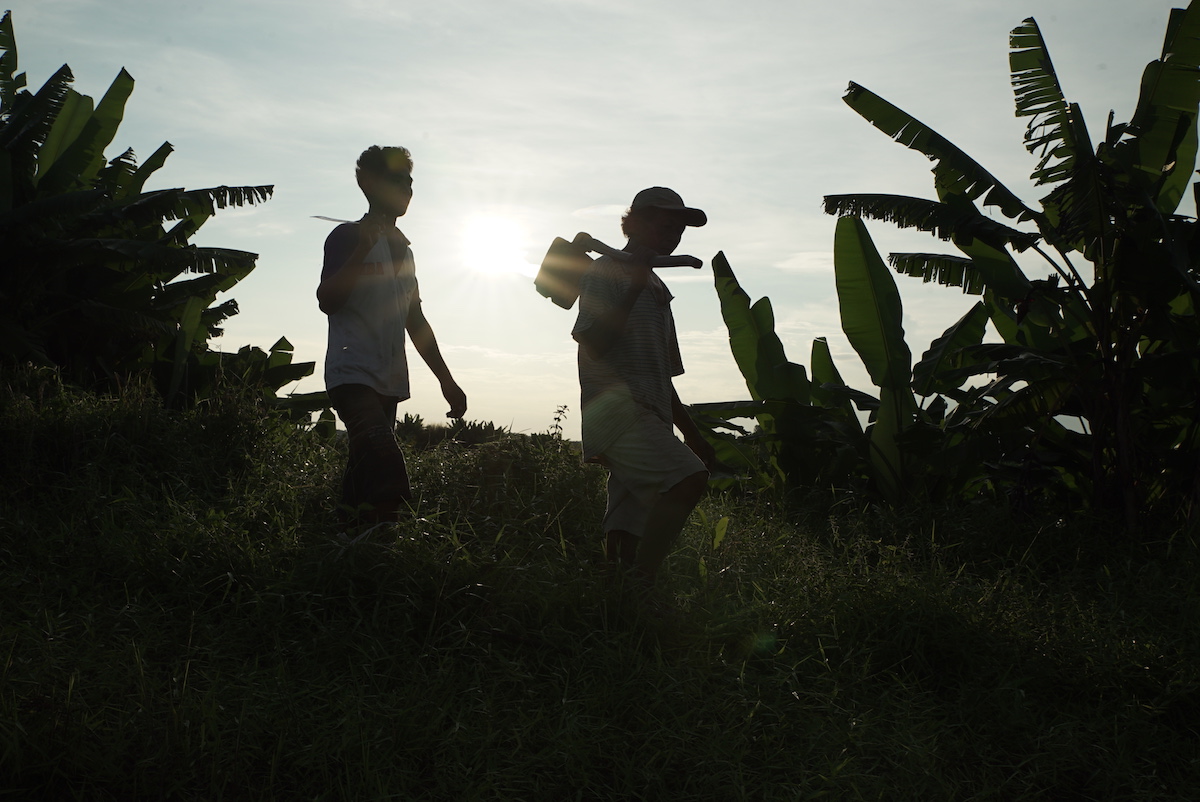Asia Pulp & Paper (APP) is the largest pulp and paper producer in both Indonesia and China. With a stark history of deforestation and human rights abuses, APP’s adoption of a “no deforestation, no human rights abuses, no peat” policy in 2013, as well as the company’s step back from cutting natural rainforests, was a major move forward to stop deforestation in Indonesia. Nonetheless, not enough has changed on the ground, especially for frontline and Indigenous communities.
Farmers on their traditionally-owned land in Lubuk Mandarsah, North Sumatra, Indonesia that is in the midst of an ongoing social conflict with Asia Pulp & Paper. Learn more
For many years, APP was known as ‘the worst of the worst’ in the pulp and paper industry, in terms of forest destruction and use of lands without community consent. APP has cleared over 2 million hectares (ha) (over 7,700 square miles) of its 2.6 million ha land bank in Indonesia. Much of this forest, which was clear-cut for pulp wood or converted for industrial pulp plantations, was on carbon-rich peatland, and was the habitat for endangered tigers and elephants. More than a million hectares of the areas which have been cleared are now planted with monoculture eucalyptus and acacia plantations. In addition to this legacy of environmental destruction and climate emissions, APP has a legacy of social conflict and harm to communities, often caused by the failure to map and exclude community-owned lands from logging and plantation development. This has led to intimidation and (sometimes violent) conflicts with hundreds of communities.
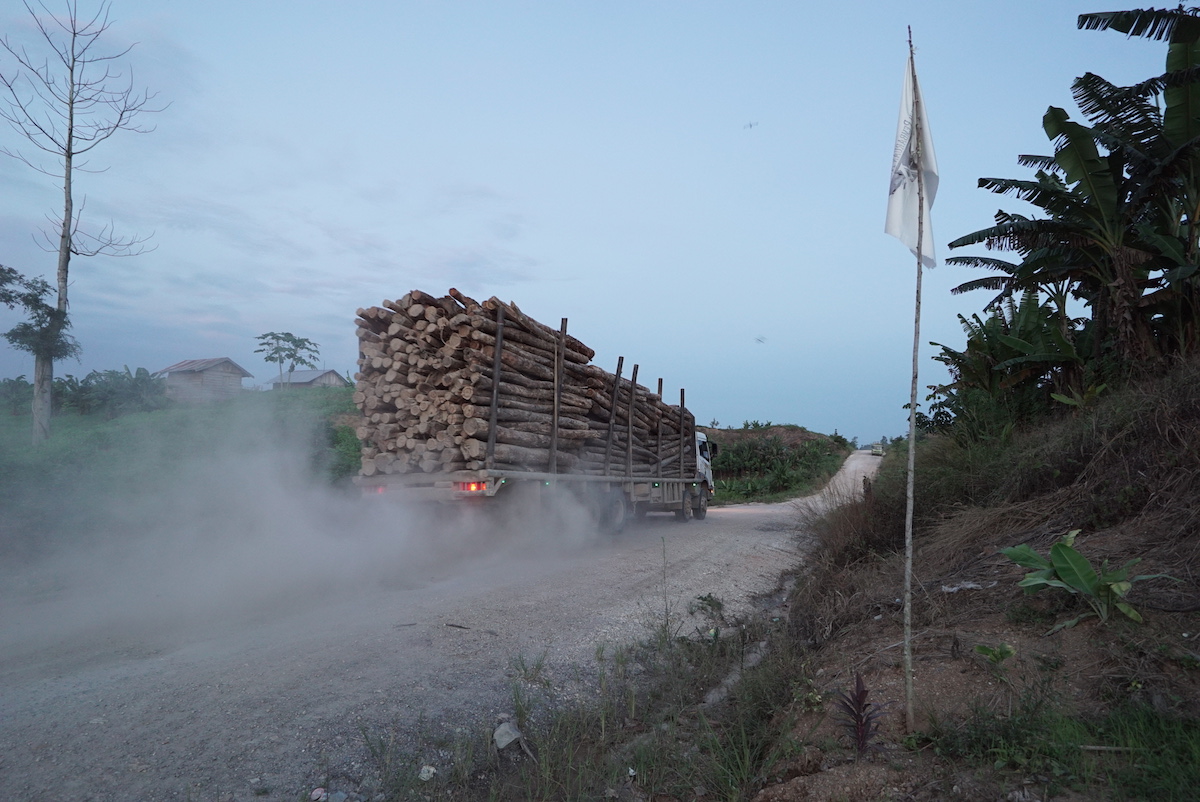
APP’s heavy logging trucks regularly cut through community-owned land to haul off harvested timber from pulp and paper plantations, destroying the roads and covering the road-side homes with clouds of dust. Learn More
These egregious environmental and social impacts gained the attention of the international community, with leading NGOs including Rainforest Action Network, WWF, Friends of the Earth, Greenpeace and Indonesian civil society, all mounting campaigns to profile and encourage cessation of business with this rogue company. In 2007, APP was disassociated from the Forest Stewardship Council (FSC) after it came out that APP had clearcut areas known to be critical forest habitat. The world market took note and major companies—including Disney, Mattel, Harper Collins, Office Depot, and many more—canceled contracts estimated at over 800 million dollars in total. 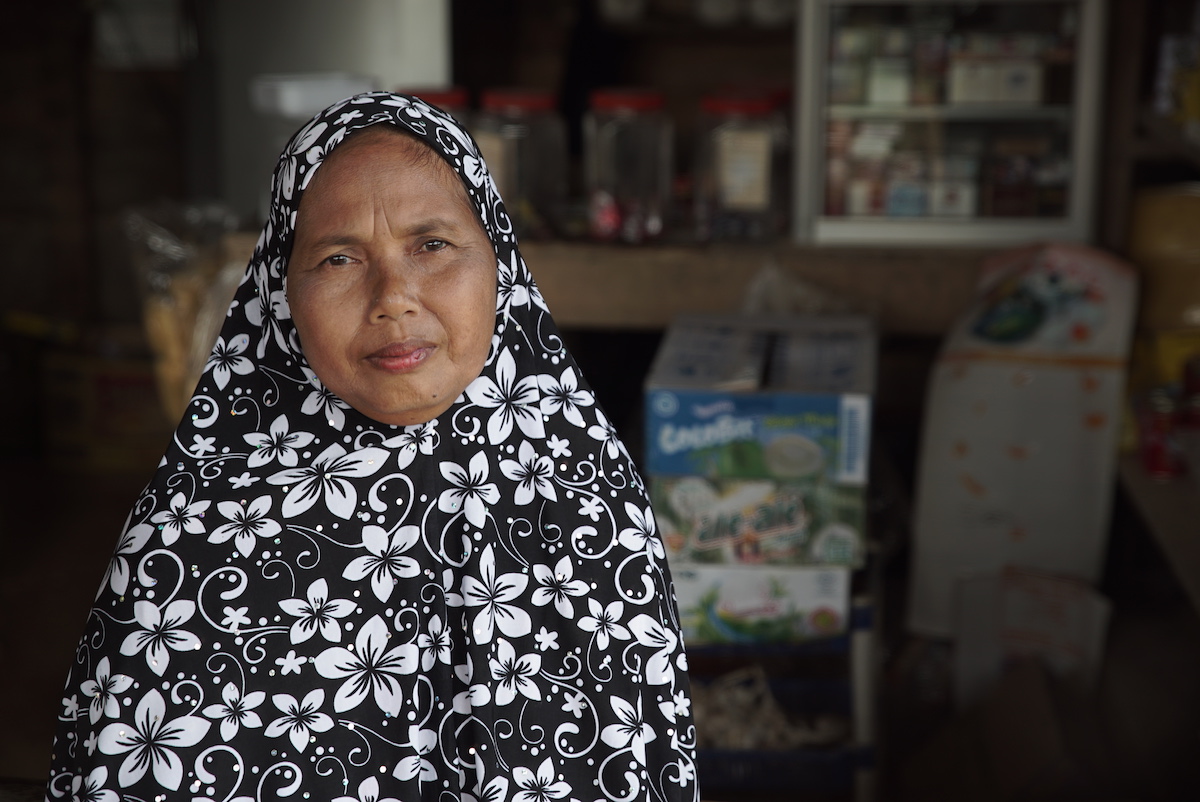
“We must continue until our land is free … until we regain our rights.” -Ibu Nurhotmahsari, Lubuk Mandarsah, Jambi Province, Indonesia. Learn more
In response these massive cancellations, APP acknowledged that it needed to change, and in February of 2013, adopted a commitment to eliminate forest destruction, human rights abuses, and clearing on peat from its operations. Since 2013, there has been some progress: most deforestation has been stopped, as has plantation expansion on forested peatlands. Still, there are major concerns. APP has recently completed construction of one of the largest pulp and paper mills in the world—the OKI mill in South Sumatra—but it does not have a sufficient long-term supply of raw material or fiber for the mill. This means there is a major risk that the company will need to continue its dependence on drained peatlands and to expand its fiber base, carrying a significant risk of new social conflict and further deforestation.
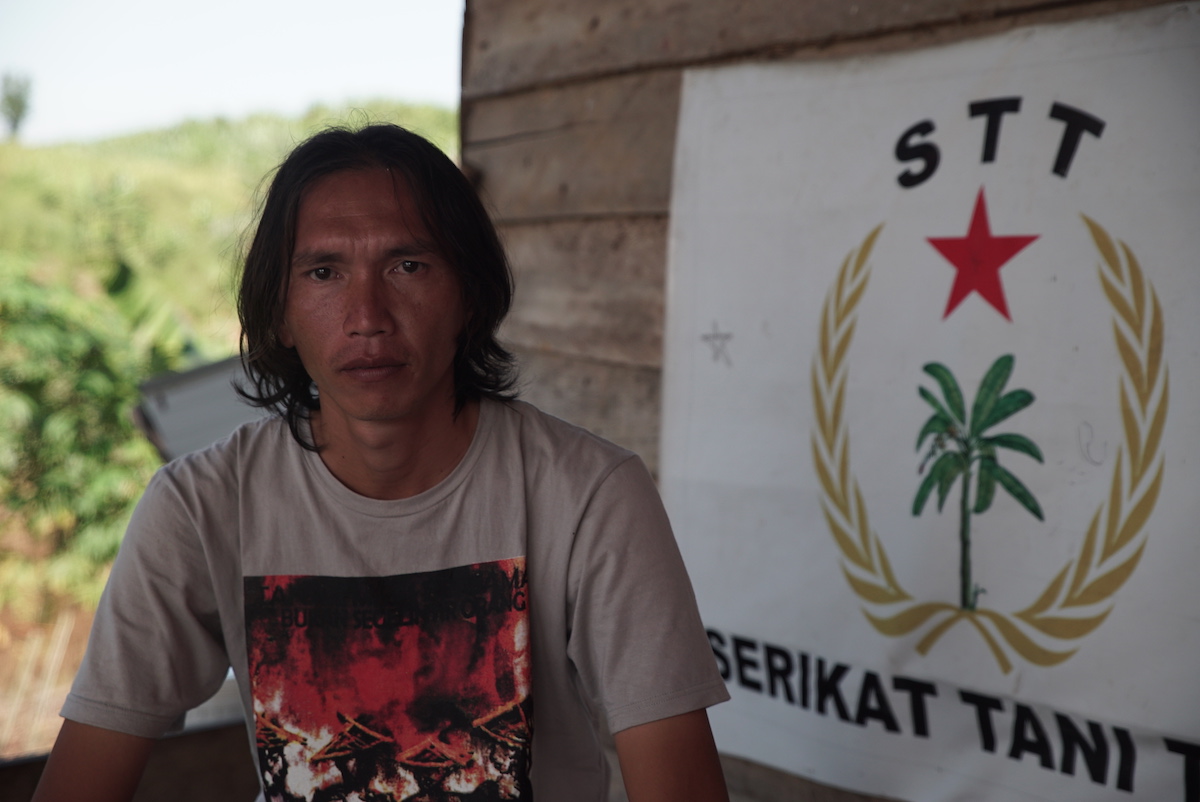
“We can see that Asia Pulp & Paper (APP) has broken their commitment.”-Frandody Taruna Negara, in Lubuk Mandarsah, Jambi Province, Indonesia. Learn more
In addition, APP’s legacy of land grabs, rights violations and social harm remains hugely problematic. There are hundreds of communities who are currently seeking remedy for the use and the clearance of their traditionally-owned forests and farms without their consent. One of the most extreme examples of ongoing social conflict on APP’s plantations has been the case of Lubuk Mandarsah, profiled on the Beyond Paper Promises website. As a case study, here is that story:
Lubuk Mandarsah, in the province of Jambi, in Sumatra, is an ethnic Melayu farming community of about 6000 people, who rely on their crops of rice, vegetables, and coffee for both subsistence and cash income. In 2006, APP started operations in the area, bulldozing farmland and throwing cleared trees into the narrow river. The community rose in protest; they filed complaints and held protests at local government offices. When those protests did nothing, and the clearing continued, people took direct action and disabled the excavators. Nine villagers were arrested and were put in prison for 15 months. This did not deter action; after APP harvested their first crop of eucalyptus trees, farmers returned and reclaimed their land by planting crops on their now open land.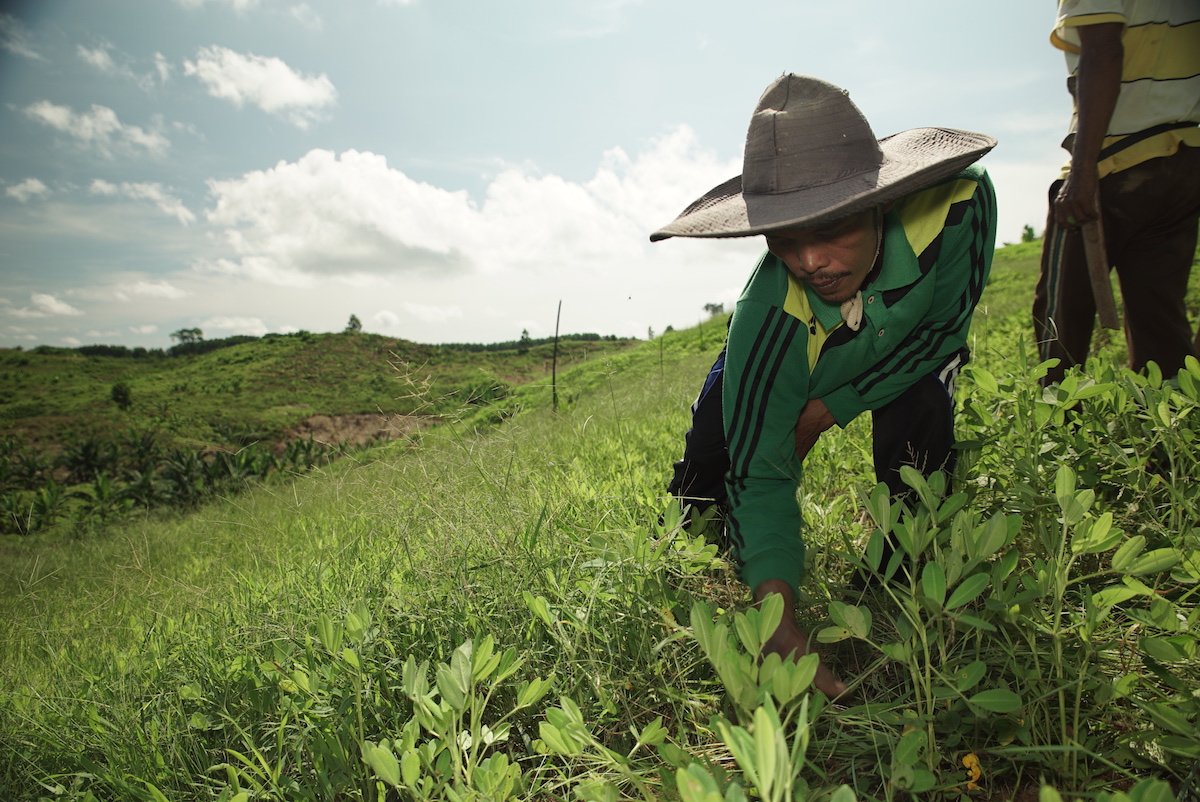
Farming in Lubuk Mandarsah, Indonesia is more than a way of life, it’s an act of resistance. Learn More
The conflict reached a tragic apex on February 8th, 2015. The community members of Lubuk Mandarsah—which had been actively planting and coming to and from the land in question—had planned a harvest celebration. APP had been informed, and had agreed to let people go freely through the security checkpoint they were using to monitor traffic to and from the area. That afternoon, Indra Pelani, a young activist from the area, went to pass through the gate to attend the festival. When he arrived, an argument ensued with the security guards and Indra Pelani never arrived at the ceremony. The next day his body was found, with his hands and feet tied, beaten to death. 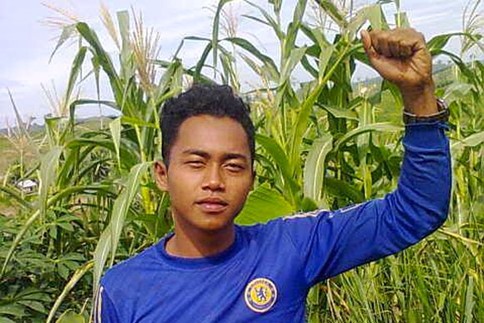
Indra Pelani, murdered activist-farmer. Photo credit: Walhi Jambi. Learn More
The murder was widely condemned in the national and international press. APP suspended activities with the security force in the area and has left the community more or less alone since the murder. The security guards surrendered themselves to the police, and are now in jail. Still, since the incident, little has changed with the underlying conflict in the region. Over 300 people are now actively farming on land that they have used for generations but is currently legally part of APP’s plantations. Farmers still live in fear that they will lose their land, their crops, and the homes they have built.
APP must ensure that conflicts like this never occur again, that existing conflicts are resolved and that the harm communities have suffered is addressed and remedied. Click here to learn more and take action today!
